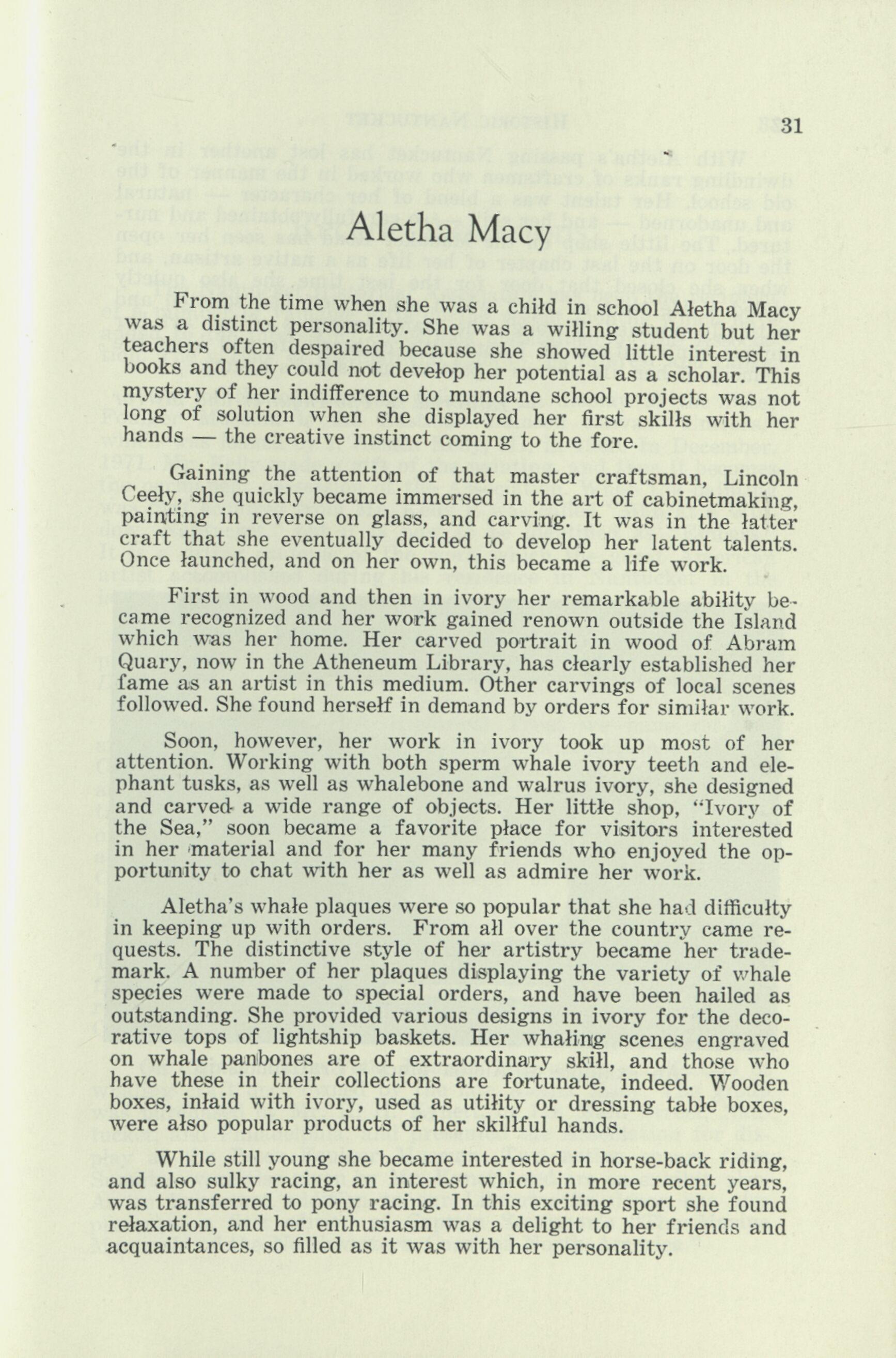
2 minute read
Aletha Macy
31
h rom the time when she was a child in school Aletha Macy was a distinct personality. She was a willing student but her teachers often despaired because she showed little interest in books and they could not develop her potential as a scholar. This mystery of her indifference to mundane school projects was not long of solution when she displayed her first skills with her hands — the creative instinct coming to the fore. Gaining the attention of that master craftsman, Lincoln
Ceely, she quickly became immersed in the art of cabinetmaking, painting in reverse on glass, and carving. It was in the latter craft that she eventually decided to develop her latent talents.
Once launched, and on her own, this became a life work.
First in wood and then in ivory her remarkable ability became recognized and her work gained renown outside the Island which was her home. Her carved portrait in wood of Abram Quary, now in the Atheneum Library, has clearly established her fame as an artist in this medium. Other carvings of local scenes followed. She found herself in demand by orders for similar work. Soon, however, her work in ivory took up most of her attention. Working with both sperm whale ivory teeth and elephant tusks, as well as whalebone and walrus ivory, she designed and carved a wide range of objects. Her little shop, "Ivory of the Sea," soon became a favorite place for visitors interested in her material and for her many friends who enjoyed the opportunity to chat with her as well as admire her work.
Aletha's whale plaques were so popular that she had difficulty in keeping up with orders. From all over the country came requests. The distinctive style of her artistry became her trademark. A number of her plaques displaying the variety of whale species were made to special orders, and have been hailed as outstanding. She provided various designs in ivory for the decorative tops of lightship baskets. Her whaling scenes engraved on whale panbones are of extraordinary skill, and those who have these in their collections are fortunate, indeed. Wooden boxes, inlaid with ivory, used as utility or dressing table boxes, were also popular products of her skillful hands.
While still young she became interested in horse-back riding, and also sulky racing, an interest which, in more recent years, was transferred to pony racing. In this exciting sport she found relaxation, and her enthusiasm was a delight to her friends and acquaintances, so filled as it was with her personality.
32 HISTORIC NANTUCKET
With Aletha's passing Nantucket has lost another in the dwindling ranks of craftsmen who worked in the manner of the old school. Her talent was a blend of her character — natural and unadorned — and her skill — so carefully obtained and nurtured. The little shop on the Madaket Road has seen her open the door on the last chapter of her life as a native artisan, and when she closed that door for the last time she also quietly ended a life time of work which she herself had selected and patiently pursued. Through the many examples of her art her unique contributions to Nantucket's cultural life will keep the memory of her life always a part of our Island's history. — Editorial in The Inquirer and Mirror
An example of Aletha Macy's Craftsmanship








